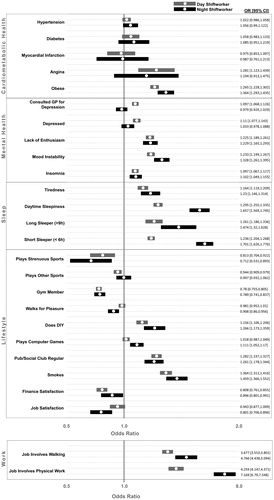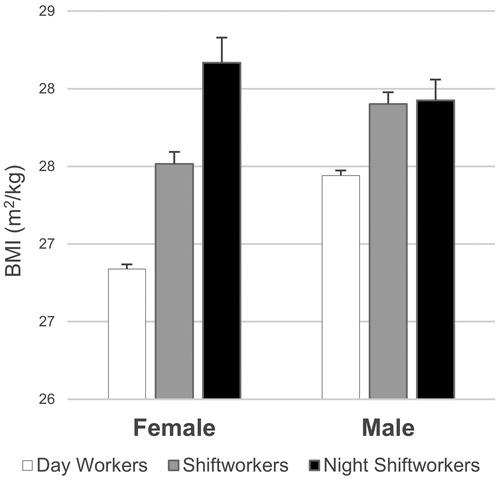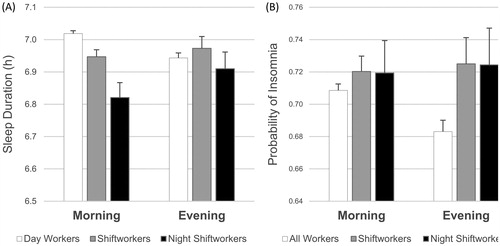Figures & data
Table 1. Characteristics of study participants.
Figure 1. Probability of health and lifestyle differences between night/day shiftworkers and all workers in the UK Biobank. The odds ratios in the lower panel are plotted on a different scale to illustrate the higher levels of work-related physical activity reported by the shiftworkers.

Figure 2. Shiftwork was more strongly associated with BMI in women, particularly for the night shift. Female shiftworkers had increased BMI compared to day workers following adjustment for confounding factors compared to male shiftworkers.

Table 2. Association between shiftwork and metabolic, mental health, and sleep parameters, comparing shiftworkers to those who did not work shifts.
Figure 3. The effects of shiftwork on sleep were dependent on chronotype. Morning-type shiftworkers reported reduced sleep duration compared to morning day workers, while evening types reported a smaller decrease in sleep duration associated with (A) shiftwork. Shiftwork was associated with increased probability of reporting insomnia in (B) evening types.

